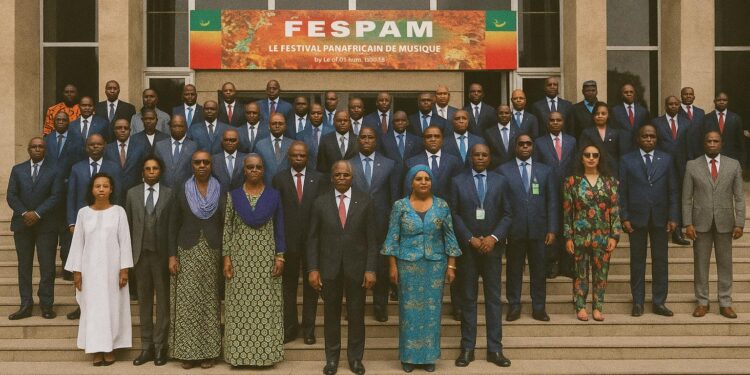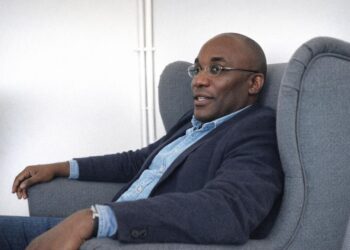A Festival as a Soft-Power Instrument
When Prime Minister Anatole Collinet Makosso inaugurated the twelfth Pan-African Music Festival Symposium, the ceremony felt less like a routine cultural appointment and more like a finely tuned exercise in nation-branding. By assembling academics, ethnomusicologists and digital strategists under the chandeliered dome of Brazzaville’s Palais des Congrès, the Republic of Congo reminded visiting delegations that artistic vibrancy can underpin diplomatic gravitas. In the words of UNESCO’s resident representative, Fatoumata Barry Mariega, the gathering is a forum where “musical Africa becomes conscious of its economic heft and structuring power”. That framing aligns smoothly with Brazzaville’s longstanding pursuit of cultural soft power first articulated in the early 1990s, a policy now broadly echoed in the Mondiacult 2022 Declaration that recognises culture as a pillar of sustainable development.
Digital Economy Amplifies Rhythms
The symposium’s theme—“Music and Economic Stakes in Africa in the Digital Era”—captures a continental inflection point. Streaming revenues on the continent, valued at barely 2 percent of the global market in 2019, are projected by the African Development Bank to approach USD 1.6 billion by 2026 as broadband penetration rises. Congo’s policymakers see opportunity rather than disruption. Minister of Cultural Industries Lydie Pongault argued that a ‘voluntarist’ industrial framework, coupled with clear intellectual-property safeguards, could transform local studios into export hubs. Her ministry cites successful licensing pilots with regional telcos that have already doubled royalty collections for Congolese composers since 2022. By foregrounding such metrics, Brazzaville positions itself as a test-bed for digital monetisation models that could be replicated from Dakar to Dar es Salaam.
Training for the Next Creative Class
Economic ambition, officials caution, must rest on human-capital depth. Prime Minister Makosso therefore urged an expansion of vocational training in sound engineering and rights management—skills often imported at premium cost. The government’s five-year cultural strategy budgets 3.5 percent of education expenditure for creative-industry curricula, a figure applauded by the International Music Council in its 2024 regional outlook. The emphasis on user literacy also acknowledges the asymmetry between tech-savvy artists and the informal ecosystems that market their work, a gap highlighted by scholars from the University of Yaoundé who presented case studies demonstrating that 40 percent of independent releases in Central Africa still bypass digital distribution channels altogether.
Traditional Instruments, Contemporary Identity
Beyond spreadsheets and codecs, FESPAM preserved its anthropological core. Minister Pongault’s reception of seven traditional instruments—among them the Rwandan inanga and the Ivorian goni—further enriches the Pan-African Music Museum, itself a culmination of curatorial efforts dating back three decades. Each artifact carries layers of meaning that resist commodification. Abdou Sambadjiata of Côte d’Ivoire described the goni as “a sonic archive of collective memory,” while Mauritania’s Vienvona Babajidou recalled that the umuduri once lulled royal infants. Such testimonies underscore the symposium’s assertion that economic modernisation need not flatten cultural nuance; rather, heritage can provide the narrative capital that global audiences increasingly prize in music discovery algorithms.
Regional Integration Through Sound
FESPAM’s continental mandate dovetails with the African Union’s Agenda 2063, which champions creative industries as vectors of intra-African trade. Delegates from the AfCFTA secretariat highlighted that harmonised copyright registries could lift cross-border royalty flows by as much as 25 percent within five years. Congo, already hosting the Central African hub for the International Confederation of Societies of Authors and Composers, is well placed to pilot such integration. Observation missions from Nigeria and Kenya expressed interest in replicating Brazzaville’s festival-museum dual model to boost cultural tourism revenues, a sector the UN World Tourism Organization estimates may recover to pre-pandemic levels by 2027.
A Confluence of Culture and Development
As sessions adjourned, a recurring motif emerged: music in twenty-first-century Africa is simultaneously an archive, a marketplace and a diplomatic language. Brazzaville’s stewardship of FESPAM 2025 displays a calibrated blend of continuity and innovation, affirming the state’s conviction that cultural policy can generate both identity cohesion and fiscal dividends. Delegates departed with white papers on metadata standards and audience analytics, yet the more resonant takeaway may have been intangible—the reminder that in Congo-Brazzaville, melody remains a shorthand for national poise. By harmonising digital opportunity with heritage preservation, the government signals that the next crescendo in Africa’s creative economy could well be orchestrated from the banks of the Congo River.











































